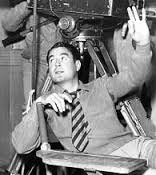
It’s a medium with many virtues we tend to overlook: low cost, portability, and compact storage of text, images and data.
Although the precise origins of paper are hard to identify, some authorities place it in China about 105 AD. Plant fibers gathered and poured into a water bath were spread and carefully removed by a screen underneath, leaving a thin layer of material that could be dried so it would accept paint or ink. Papermaking eventually migrated to Egypt and Iraq, and then to Europe. “Paper” made in what is now Egypt was usually produced from papyrus or parchment (an animal skin), the only tools for capturing language recognized in the Koran.
While Egyptian papyrus (from which the word “paper” evolved) was initially the preferred material, it required more resources and woodworking skill than was practicable elsewhere. Eventually, near the end of 780s dried fibers of fabric became the dominant ingredient, partly because it was less susceptible to forgeries than all the other alternatives, and because it could more easily be sized with oils made from animal by-products. Sizing produced a smooth surface able to hold ink.
This and much more is told in Lothar Müller’s new book, White Magic: The Age of Paper (Polity Press, 2014). He notes that even before the invention of the printing press in 1450 there was a steady stream of written material made by copyists, as well as “printers” using ink transfers from individual wood blocks. Hand copied books were numerous, along with items such as block-printed playing cards with monarchs painted on their surfaces. In the 14th Century it appears that nearly everybody played cards.
Arguably the most potent effect of the ability to make paper was not necessarily the book, but the ledger and the formal contract. Spain as the center of Phillip II’s empire is given credit (or maybe it should be blame) for creating one of the first paper-based bureaucracies. Decrees, written petitions, contracts and files were committed to the page. Still made from rag fibers until higher demand would require the substitution of wood pulp, paper made possible major advances that are frequently still used: the keeping of governmental and business ledgers, the practice of double bookkeeping, and the increasing use of correspondence by mail. In the latter case, a chain of effects followed wider access to postal systems, triggering the development of better roads and predictable timetables.
All of these advances are based on a medium with virtues we tend to overlook: low cost, portability, and compact storage of text, images and data. These conditions were the essential prelude to the printed book, which was made possible especially in the West because of the ease of creating standardized type based on the small Latin alphabet.
Not surprisingly, print formalized the idea of authorship, turning writers into long-form storytellers, and readers into linear thinkers. The availability of paper from mills sprouting up everywhere contributed to the flowering the enlightenment and, later, distribution of scientific research based on the premise of world-wide peer-review.
Müller’s study of paper and the book notes that the story of these media is not over. Paper gives history a durable record not yet equaled by digital files. He also reminds us that books are things. They can be owned, passed on, or resold. Many of us still draw satisfaction from their visible and tactile presence. By contrast, the electronic version is more accurately described as a licensed product. As such, it’s not quite the object for independent use that is a defining feature of its enduring paper counterpart.
Comments: Woodward@tcnj.edu
